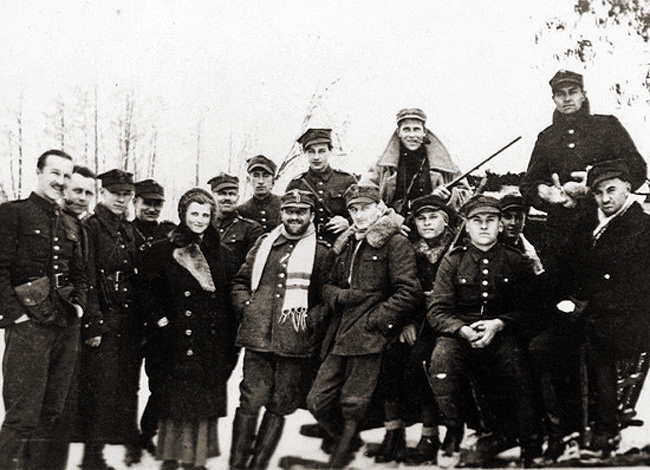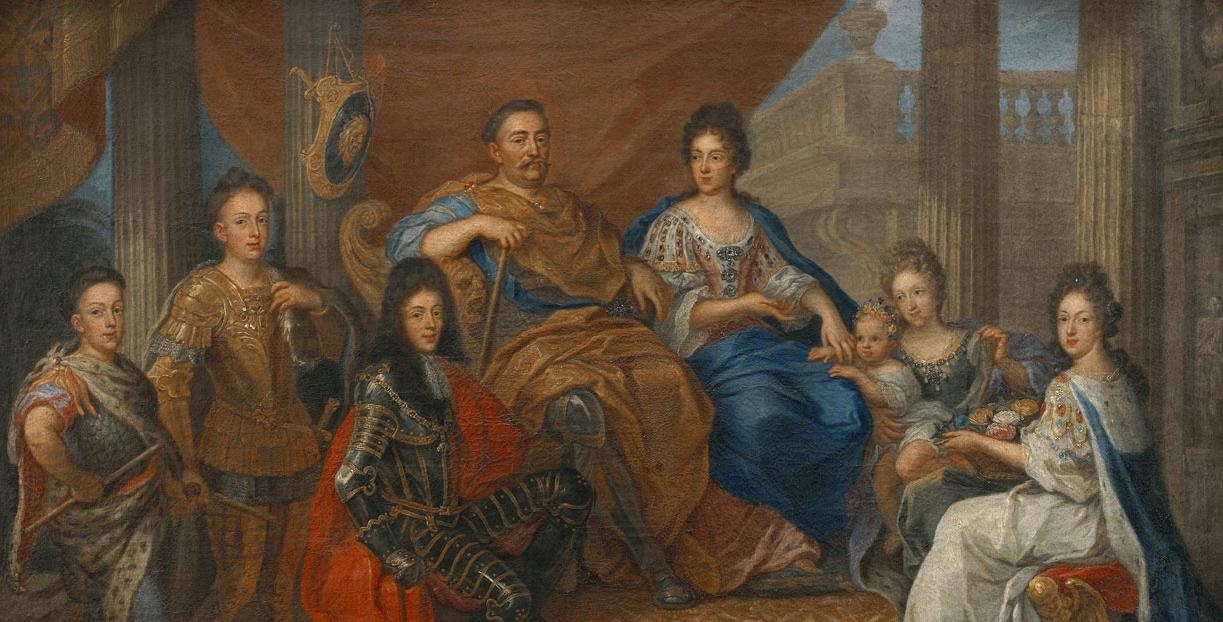In Poland, one of the most frequently quoted maxims is ‘It is worth being decent’. Its author, Władysław Bartoszewski, was born 100 years ago, and seven years have passed since his death. For several decades he was one of the most characteristic figures of Polish public life: a Catholic and anti-communist, an independence activist and Home Army soldier, a political prisoner during communist rule, and a friend of Jews and Germans. On several occasions, his energetic temperament and sharp tongue put him in the middle of political controversies.
by Robert Kostro
The later Foreign Minister was born in Warsaw in 1922: he was 17 at the outbreak of the Second World War. It marked Bartoszewski’s entire life. A year later, he was arrested in a round-up and sent to the German concentration camp Auschwitz. Thanks to the intervention of his parents and the authorities of the Polish Red Cross, he was released in the spring of 1941. In the summer of 1942, he became an employee of the Bureau of Information and Propaganda of the Home Army (AK) and a collaborator of the Żegota Council to Aid Jews. Politically, he became associated with the milieu of the Front for the Rebirth of Poland, headed by the outstanding Catholic writer Zofia Kossak-Szczucka, a co-founder of Żegota. At the same time, Bartoszewski studied Polish Philology at the clandestine Faculty of Humanities of the University of Warsaw, although he never graduated. He wrote and edited articles for the underground press. In 1944, he took part in the Warsaw Rising, for which he was distinguished on two occasions.
After the war, Bartoszewski was briefly involved in the anti-communist underground and then in the activities of the legal opposition, as a publicist and editor of the Polish People’s Party’s Gazeta Ludowa. After the 1956 political breakthrough, he continued his activities initiated when in Gazeta, bringing out of oblivion the merits of the Home Army and commemorating the aid given to Jews by Poles; he wrote about it, among others, in Stolica and Tygodnik Powszechny.

In 1963, the Yad Vashem Institute awarded him the medal of Righteous Among the Nations. On that occasion, he gave an extensive account in Israel of the activity of Żegota and aiding Jews, which, for censorship reasons, was not published in Poland until many years later. At that time, he began travelling to the West, establishing relations with the Polish émigré circles. Invited, among others, to Austria, West Germany or Israel, he talked about the German occupation of Poland, his wartime and camp experiences and about Żegota. He became one of the key participants in the Polish-Jewish and Polish-German dialogue.
Bartoszewski’s articles and books published in the 1960s and 1970s were of crucial historical and documentary significance. He wrote about aiding Jews, German crimes in occupied Poland, the activities of the Home Army and the Warsaw Rising. Publications written or co-edited by him include Ten jest z Ojczyzny mojej. Polacy z pomocą Żydom 1939–1945 [He is the one from my Fatherland. Poles aiding Jews 1939–1945] (1967), Warsaw Death Ring (1967), Ludność cywilna w Powstaniu Warszawskim. Prasa, druki ulotne i inne publikacje powstańcze [Civilians in the Warsaw Rising. Press, ephemeral prints and other insurgent publications] (1974) and 1859 dni Warszawy [1,859 Days of Warsaw] (1974).
In the 1970s, Bartoszewski taught history at the Catholic University of Lublin and collaborated with the anti-communist opposition. He was among the participants of the Polish Accord of Independence, co-founded the Society for Scientific Courses and in 1980 he joined Solidarity. During martial law, he was interned. In post-1989 Poland, Bartoszewski held a number of important state and social functions. He was, among others, ambassador to Austria, twice foreign minister, chairman of the Council for the Protection of Struggle and Martyrdom Sites, the International Auschwitz Council, as well as many other social and advisory bodies of memorial institutions. He was also the first chairman of the Polish History Museum’s Council.

His views placed Władysław Bartoszewski rather to the right of centre, but for most of his life he functioned outside the party framework. During the German occupation, he was a member of the Christian-Democrat Front for the Rebirth of Poland, and after the war – of the Mikołajczyk-led/inspired Polish People’s Party. Later on, he avoided party involvement, which did not prevent him from presenting distinct views. He was close to conservative or, in the traditional sense, Christian Democrat positions. When he received the prestigious German Book Prize in Frankfurt in 1986, the jury called him an ‘ardent Catholic, an ardent Pole and an ardent humanist’. Perhaps, if a grouping were to be formed in Poland reminiscent of the Western Christian Democrats of the second half of the 20th century, Bartoszewski would find himself among the members of such a formation. Today, we remember his participation in Bronisław Komorowski’s presidential campaign, but we rarely mention the fact that prior to that he was Lech Kaczyński’s advisor when the latter served as Mayor of Warsaw.
Władysław Bartoszewski is often remembered today as a man of dialogue. It is true that he was one of the main proponents of reconciliation with Germans and Jews. The point is that the dialogue and reconciliation in which Bartoszewski was involved were based not on discussion but on a clear definition of positions. Many years of work documenting the German occupation and the help given to Jews by Poles served this purpose. Its outstanding example is the account he gave to Yad Vashem in 1963. It is worth mentioning a few points where Bartoszewski’s voice resonates particularly strongly and convincingly.
He emphasised the close connection of Żegota with the Polish Underground State and its financing by the London-based Polish government-in-exile. ‘The clergy rendered colossal services,’ he said firmly, at the same time pointing out that ‘one cannot think that all the people who helped the Council knew that they were helping Jews’. But that was the price of conspiracy. Bartoszewski rejected accusations that the Polish Underground State did not sufficiently combat people denouncing Jews to the Germans. Sentences for those extorting money or informing the enemy about Jews’ hiding places were not handed down on the basis of tips, but after lengthy investigations. These cases were extremely difficult as often only a blackmailer’s physical description was available as evidence. Establishing the name – if possible at all – required obtaining information through underground contacts in the criminal police, which was subordinated to the Germans. Bartoszewski did not turn a blind eye to examples of anti-Semitism in the Polish underground, but at the same time he avoided generalisations. He was an opponent of nationalism yet often warmly remembered those representatives of National Democracy who showed courage in supporting their Jewish fellow citizens.

While participating in various initiatives for reconciliation with Germany, Bartoszewski also showed consistency in combating the local manifestations of revisionism. At the turn of the century, he criticised the idea of building a Centre Against Expulsions, which would present Germans as victims of the Second World War, as people unjustly expelled from their homeland (i.e. the current Polish western and northern territories). An excellent example of this attitude was a letter to Norbert Lammert, President of the Bundestag, from March 2009 in which he attacked the initiator of the Centre, Erika Steinbach, writing as follows:
As a European I cannot accept the false interpretation of history publicly pushed by Ms Steinbach, that Poland supposedly planned and implemented the process of the resettlement of the Germans already long before the Potsdam Conference. This assumption taken out of the cause-and-effect context is nothing else but a falsification of history. According to this interpretation, Hitler’s barbarity would only be a pretext for the Poles to settle accounts with the Germans.
Władysław Bartoszewski was an opponent of communism and always worked for a democratic, independent Poland. For this reason, he was imprisoned during the Stalinist period. Yet he did not change his behaviour later, either, cooperating with the émigré community in the 1960s or acting in the democratic opposition in the 1970s and 1980s. His activity was full of examples of fidelity to the independence ethos and the rationale of the Polish government-in-exile.

After the fall of communism, he opposed the fraternisation of some post-Solidarity circles with post-communists. When, in 1995, Jan Karski supported Aleksander Kwasniewski in the latter’s 1995 electoral campaign, Bartoszewski, together with Jan Nowak-Jeziorański, wrote an open letter to the former emissary, considering his behaviour as a betrayal of the ideals guiding the anti-communist opposition and Polish political émigrés. Bartoszewski often allowed himself to be malicious towards people who had episodes of cooperation with the communists.
*
Władysław Bartoszewski was a precursor of what can be called historical politics. His defence of the Polish cause, though sometimes tough, always included respect for the opponent. He was a courageous politician who looked for strong points in the Polish historical narrative, while not denying inconvenient truths. In one of his speeches, he pointed to two elements without which peace is impossible: freedom and truth. Bartoszewski tried to pursue specific issues, explaining abroad the Polish point of view, the uneasy Polish fate. His work remains a challenge and can be an inspiration for the Polish policy of remembrance.
Author: Robert Kostro
Translation: Mikołaj Sekrecki





